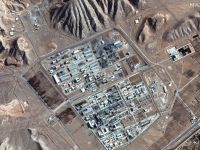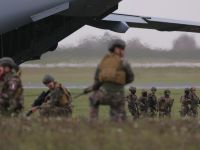By Munir K. Nasser
Washington, DC
US Assistant Secretary of State for the Bureau of Near Eastern Affairs Edward Walker will be traveling to the Middle East on Saturday July 29 to tour all the Arab countries, but will not visit Israel, a State Department source told Albawaba.com.
The source confirmed that Walker “will discuss with Arab leaders the results of Camp David and get some support on key issues, especially Jerusalem,” when the US brings the parties together.
The source said that Walker would address the issue of Arab criticism of the US for blaming Arafat for the failure of the summit.
“I think Mr. Walker’s trip will be in part to explain what that criticism was,” he said. “I think that most countries are reading the President’s and Secretary Albright’s statements as criticizing Arafat, but if you go back and read them, it is not so much we were criticizing Arafat, but we felt Barak understood the historic importance of the summit better than Arafat did. It is clear that Arafat was making decisions on Jerusalem without the support of the Arab world. That is something that will be addressed by Mr. Walker on his trip to the region,” he added.
Walker most recently served as the Ambassador to Israel from 1997 to 1999. He has also served as Ambassador to Egypt from 1994 to 1997, Deputy Permanent Representative of the United States to the United Nations from 1993 to 1994, and as Ambassador to the United Arab Emirates from 1989 to 1992 through the period of the Gulf war. Walker is fluent in French, Hebrew, and Arabic.
The State Department source said that the US is not taking part in the meeting this Sunday between Palestinian and Israeli negotiators after the collapse of the Camp David summit. “I think we are keeping our hands off for a little bit allowing them some space to reflect and to possibly make up their own decisions before we get back involved,” he added.
The source stressed that all the positive elements of the summit will be built on in the upcoming negotiations, including Jerusalem. He said this would actually involve putting down ideas on paper and dealing with the issues of refugees, borders and settlements, and gaining some headways and compromises.
“All of that will be built upon at the next summit that hopefully will put an agreement together before September 13,” he noted.
He admitted that a unilateral declaration of a Palestinian state causes concern to the Clinton Administration. “We are sticking to our policy that unilateral acts should be avoided, and that every thing should be settled through negotiations,” he said. He referred to some reports that the Palestinians may consider putting the declaration off until November 10, but he emphasized that the US is still viewing September 13 as the deadline that has to be dealt with.
“In that context, one would think that we would either seek a postponement by the Palestinians or get a summit back together so we can get it done by September 13,” he pointed out.
When asked whether Arafat committed in the trilateral statement after the summit that he would not take unilateral actions on the state, the source said that no such commitment was made. “The way I read it was that we agree that unilateral acts would be unhelpful, but I don’t know if I would read it as committing to not declaring a state. I think he is still holding that card as a way to move things along,” he explained – Albawaba.com
© 2000 Al Bawaba (www.albawaba.com)







